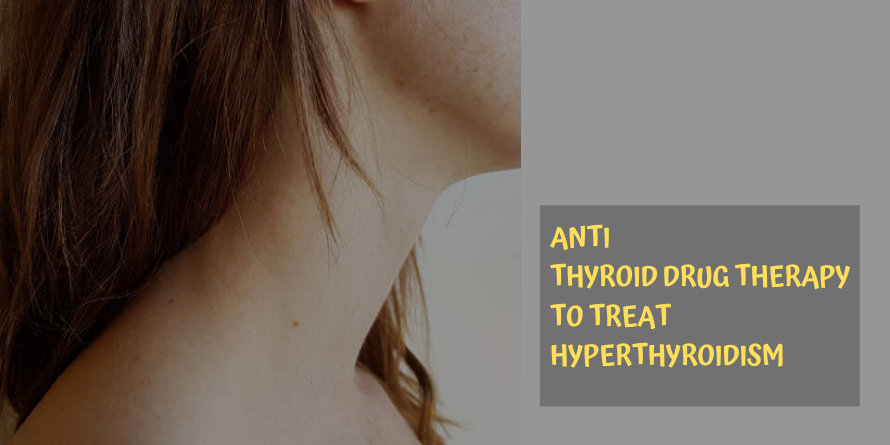Hyperthyroidism is a state where the thyroid gland produces more thyroid hormones than are needed by the body. It is also referred to as thyrotoxicosis, or an over-active thyroid.
The two antithyroid drugs commonly used are : Carbimazole (CMZ) and Propylthiouracil (PTU). They both work by reducing the amount of thyroid hormone released into the circulation. They may be used short term to prepare for radioactive iodine treatment or surgery, or long term with the aim of a lasting cure for patients with Graves’ disease (a form of hyperthyroidism which may sometimes be cured after a course of tablets). The first choice drug is CMZ. If this is not tolerated or there are plans for pregnancy PTU is used.
For Hypothyroidism Treatment Initially you are started on a high dose of either CMZ or (in some specific circumstances) PTU.The over active gland should be under control in about six to eight weeks.You should visit your doctor a few weeks after you start the therapy to see how your body is adjusting and to repeat your thyroid function blood test.
If you have Graves’ disease there is about a 30-50% chance that you will have no further problems with your thyroid after a single course of antithyroid drugs. You will have regular blood tests and check-ups over the next six to 12 months in case your thyroid gland becomes over-active again . After 12 months the risk of a relapse is low but relapses can occur many months or years after the first episode.
Provided you are free of symptoms and your thyroid blood test remains normal one year after treatment you will need no further check-ups other than occasional thyroid blood tests. It is, however, important to see your doctor and to ask for a blood test if you notice any hyperthyroidism symptoms in the future.
- There is more chance of continuing problems if:
- you have a very large thyroid gland
- you require high doses of treatment
- there have been problems controlling your hyperthyroidism with medications.
- you have thyroid eye disease
- Smokers are up to three times more likely to relapse than non-smokers. Women and those over the age of 40 seem less likely to relapse after a course of treatment.
Minor side effects, such as altered taste sensation or nausea are noted with both the drugs.The most common significant side effect of both drugs is a rash, which is usually a generalised itchy redness which clears up if the drug is stopped. The other drug may then be used if this happens.
The most serious side effect of both drugs is bone marrow depression causing a lowering of the white blood cells that normally fight infection, a potentially life-threatening condition called agranulocytosis. This is extremely rare and affects a small number of people usually during the first three months of treatment. If you develop a sore throat, mouth ulcers or unexplained fever stop taking the tablets immediately and go to the nearest Accident and Emergency department in order that a full blood count can be carried out. Tell the doctor of the medication you are taking and request a white blood cell count. You should not take another dose until you know the count is normal.
Very rarely, serious liver injury has been reported in patients, including children, taking PTU, especially during the first six months of taking the drug. Your doctor should monitor you for symptoms and discontinue the PTU if liver injury is suspected. If you notice any yellowing of the eyes or skin you should see your doctor immediately.
This is very rare, but in this situation early radioactive iodine or surgery may be the choice. You will need careful preoperative treatment and close supervision by your specialist.
In theory there is no reason why not, provided your thyroid gland remains well controlled. It will initially involve regular clinic visits and blood tests every six to 12 months, under the supervision of a Thyroid specialist, as doses may continue to need to be adjusted. Once you are stable on a low maintenance dose you may be discharged for follow-up by your GP. There will be a risk of side effects. Many people feel that radioactive iodine is a more straightforward solution.
Yes. This is the usual starting treatment for a child with an over-active thyroid gland. Aside from the difference in dose the same considerations apply for children as for adults. PTU is not recommended for children unless they are allergic to CMZ as there is an increased risk of liver damage.
Some important points….
- You will normally be referred to an endocrinologist – a doctor specialising in thyroid and other endocrine disorders
- It is important to take your tablets every day. Forgetting to take your tablets will affect your blood test results and your health.
- Some medications can affect the blood test results, so it is important to tell your doctor about any other medication you are taking.
- An abnormal blood test result could be due to common illnesses. These sometimes influence the result.
- If you develop a sore throat, mouth ulcers or unexplained fever, you must see a doctor immediately and ask for a white blood cell count.
- If you notice yellowing of the eyes or skin you should see a doctor and ask for a liver enzyme test.
- If you are pregnant, or are planning to have a baby, you should tell your doctor as you may need to adjust your medication and to have more frequent blood tests.




